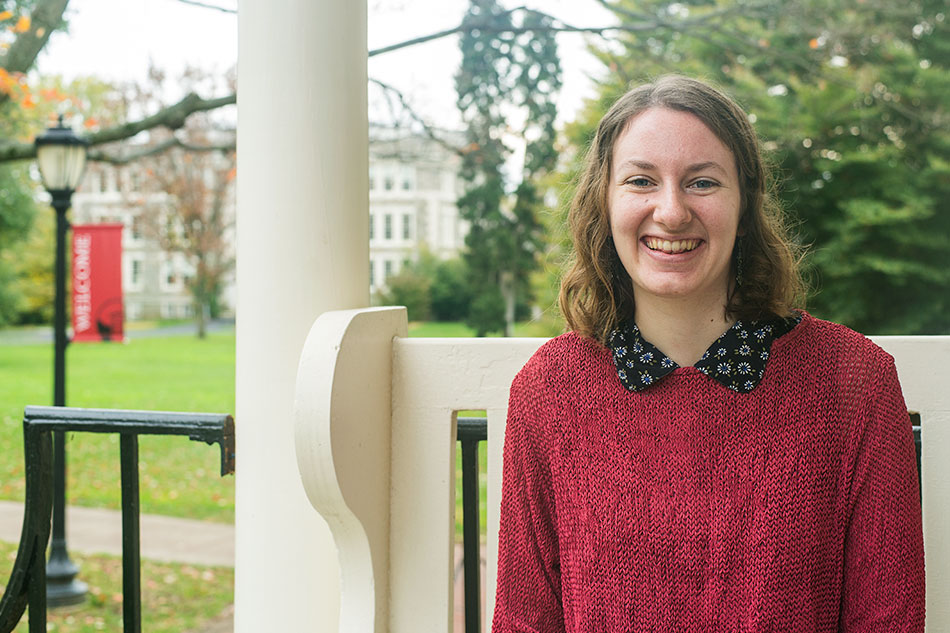English
Africana Studies

What was your favorite class and how has it influenced your further course of study?
One of my favorite classes at Haverford was African American Literature: Satire in the Black Tradition, which I took with Asali Solomon my first year at Haverford. I think that's the class that motivated me to become both an English major and an Africana studies concentrator!
Why did you choose your major/minor/concentration? What influenced you to pursue this course of study?
I was continually drawn to classes that were cross-listed with Africana studies; in an academic and cultural setting that continually promotes and values white voices and writers over all others, it felt important to seek out classes that were actively doing the opposite. The Africana studies concentration also felt like a meaningful entry point into the English major, allowing me to focus on post-colonial and Black American literature and narratives.
Did you have a summer experience (research, internship, travel) that was connected to your classwork or thesis project? If so, how did that experience change what you thought about your course of study or influence your plans for the future?
This past summer, I interned at BlackStar Film Festival in Philadelphia, a festival that celebrates black filmmakers and storytelling. Although I had never worked with film before, this felt like a meaningful way to connect my Africana studies concentration and English major. Working with this festival inspired me to explore various forms of art and storytelling; I'm now very interested in pursuing a career at the intersection of arts and activism.
What surprised you most about your course of study or what would others be most surprised by about your course of study?
When I first started the concentration, my studies were very focused on blackness in the Americas. However, studying abroad in Accra, Ghana allowed me to look at blackness and diaspora at a more global level; while context and specificity is so important, it was also so helpful (and at times unsettling) to take a step away from the American context and try to understand how the issues we study here aren't separate from what's happening in other parts of the world.
What do you hope to do after graduating from Haverford?
Right now, I feel excited about the possibility of doing arts programming at a community arts organization. I think art (visual, literary, performance) is such an important site for activism and resistance, and I would love to use my experience studying Africana studies to do this kind of work.